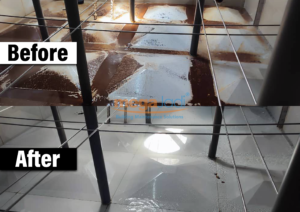Water tanks play a crucial role in providing a reliable water supply for residential, commercial, and industrial use. However, without regular maintenance, they can become breeding grounds for harmful bacteria, rust, and debris, leading to water contamination and structural damage. Maintaining water tanks is not only essential for ensuring the quality of the water but also for avoiding costly repairs that can arise from neglect. Let’s explore why water tank maintenance is so important and how regular inspections and cleaning can keep your water system running smoothly.
1. Prevent Contamination
Water tanks can accumulate dirt, sediment, and organic material over time. If left unchecked, this buildup can lead to bacterial growth, including harmful microorganisms like Legionella, E. coli, and other pathogens that pose serious health risks. Contaminated water can affect everyone who uses it, leading to illnesses and even legal liabilities for businesses or property owners.
Regular cleaning and disinfection are key to preventing contamination. Professional water tank maintenance services use specialized equipment and eco-friendly cleaning agents to ensure that the interior of the tank is thoroughly sanitized. This process eliminates the risk of harmful bacteria developing and ensures a clean water supply.
2. Ensure Water Quality
The quality of the water stored in a tank can degrade over time due to sediment, corrosion, and the presence of microorganisms. Poor water quality can result in unpleasant odors, discoloration, and foul taste, making it unsafe for consumption or use.
Routine water tank maintenance, including periodic inspections and cleaning, helps maintain high water quality. Inspections identify issues such as rust, leaks, and debris that may compromise water purity, while cleaning removes contaminants and prevents sediment buildup. Maintaining clean water is vital for health, especially in buildings where the water is used for drinking, cooking, or bathing.
3. Avoid Costly Repairs
Neglecting water tank maintenance can lead to serious structural issues. Corrosion, for example, can weaken the walls of the tank, resulting in leaks or even a complete tank failure. Repairing or replacing a damaged water tank can be expensive and disruptive, especially in commercial or industrial settings where water supply interruptions can halt operations.
Regular inspections allow for early detection of minor issues like cracks, rust, or leaks. By addressing these problems early on, you can prevent them from worsening and avoid costly repairs down the line. Investing in routine maintenance not only saves money in the long term but also ensures the longevity of the tank.
4. Extend the Life of the Tank
A well-maintained water tank can last for many years, providing a continuous, reliable water supply. Without regular maintenance, however, the tank’s lifespan can be drastically shortened. Corrosion, contamination, and structural damage can weaken the tank, making it more prone to failure.
Routine cleaning and inspection help preserve the integrity of the tank. Regularly removing sediment and rust prevents corrosion, while timely repairs prevent small issues from escalating. By extending the life of the tank, you reduce the need for expensive replacements and ensure a dependable water supply for years to come.
5. Ensure a Reliable Water Supply
Water tanks are vital for storing a consistent water supply for homes, businesses, and industries. However, if the tank becomes contaminated or suffers structural damage, it may disrupt the water supply and lead to inconvenient downtimes.
By maintaining your water tank through regular inspections and cleaning, you can ensure that the water supply remains reliable. This is particularly important in areas where access to clean, safe water is critical, such as hospitals, factories, and residential buildings.
Water tank maintenance is essential for preventing contamination, ensuring water quality, and avoiding costly repairs. Regular inspections and cleaning not only protect the health and safety of those who rely on the water but also extend the life of the tank and ensure a reliable supply. Whether you manage a residential property, a commercial building, or an industrial facility, investing in professional water tank maintenance is a smart way to protect your water system and your bottom line.
For expert water tank maintenance services, contact our team today! Let us help you keep your water tanks clean, safe, and in optimal condition.
Q1: What does a water tank do?
A water tank is a container for storing water, for many applications, drinking water, irrigation, fire suppression, farming, both for plants and livestock, chemical manufacturing, food preparation as well as many other uses.
Q2: How often should you get your water tank serviced?
When planning a water heater maintenance schedule, you should plan to have your water heater serviced at least once per year




